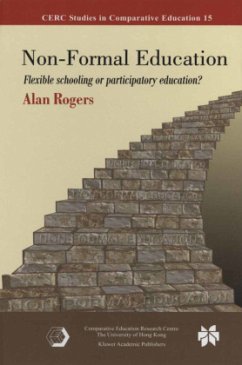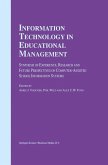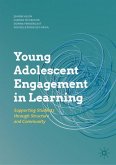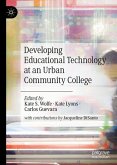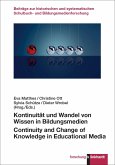This is the first full study of non-formal education on an international scale since the 1980s. The book describes the emergence of the concept in the context of development and educational reform. It traces the debate about non-formal education from its origins in 1968 to the mid 1980s, and looks at the issues that this debate raised. It then describes a number of programmes in different parts of the world which call themselves 'non-formal', pointing out the wide range of different views about what is and what is not non-formal. Rogers asks whether we should drop the term altogether or try to reconceptualise it in terms of flexible schooling or participatory education. This is an important new book by a well-established author. It deals with complex issues, but is written in a clear style. It contains an important new analysis of the development paradigms in which the controversies surrounding non-formal education grew up, and which shaped its purpose and impacts. The author's call for a reformulation of the concept will find echoes not only in developing societies, but also in Western circles, where the language of non-formal education is being used increasingly within the context of lifelong learning. The book grew out of the teaching of non-formal education in which Professor Rogers has been engaged for the last 20 years.
The Comparative Education Research Centre (CERC) at the University of Hong Kong is proud and privileged to present this book in its series CERC Studies in Comparative Education. Alan Rogers is a distinguished figure in the field of non-formal education, and brings to this volume more than three decades of experience. The book is a masterly account, which will be seen as a milestone in the literature. It is based on the one hand on an exhaustive review of the literature, and on the other hand on extensive practical experience in all parts of the world. It is a truly comparative work, which fits admirably into the series Much of the thrust of Rogers' work is an analysis not only of the significance of non-formal education but also of the reasons for changing fashions in the development community. Confronting a major question at the outset, Rogers ask why the terminology of non-formal education, which was so much in vogue in the 1970s and 1980s, practically disappeared from the mainstream discourse in the 1990s and initial years of the present century. Much of the book is therefore about paradigms in the domain of development studies, and about the ways that fashions may gloss over substance.
The Comparative Education Research Centre (CERC) at the University of Hong Kong is proud and privileged to present this book in its series CERC Studies in Comparative Education. Alan Rogers is a distinguished figure in the field of non-formal education, and brings to this volume more than three decades of experience. The book is a masterly account, which will be seen as a milestone in the literature. It is based on the one hand on an exhaustive review of the literature, and on the other hand on extensive practical experience in all parts of the world. It is a truly comparative work, which fits admirably into the series Much of the thrust of Rogers' work is an analysis not only of the significance of non-formal education but also of the reasons for changing fashions in the development community. Confronting a major question at the outset, Rogers ask why the terminology of non-formal education, which was so much in vogue in the 1970s and 1980s, practically disappeared from the mainstream discourse in the 1990s and initial years of the present century. Much of the book is therefore about paradigms in the domain of development studies, and about the ways that fashions may gloss over substance.

